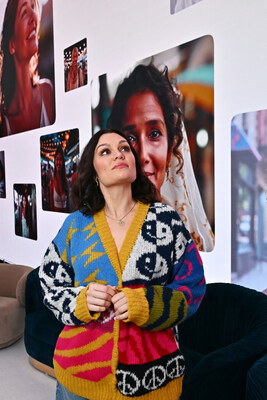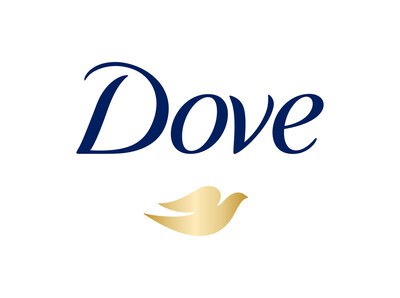TO MARK 20 YEARS OF CAMPAIGN FOR REAL BEAUTY, DOVE RENEWS ITS COMMITMENT TO ‘REAL’
Press Releases
Apr 10, 2024
As Artificial Intelligence (AI) threatens the representation of real beauty today, Dove commits to never using AI to represent real women in its ads.
LONDON, April 10, 2024 /PRNewswire/ — 20 years ago, Dove showed the world what beauty looks like when it’s real with the Campaign for Real Beauty. In 2004, it began with a startling truth; only 2% of women considered themselves beautiful. Since then, the Campaign for Real Beauty has challenged society, media and the beauty industry itself to change its representation of women, be transparent about digital distortion and face-up to the harmful impact unrealistic beauty standards have on women and girls.
To view the Multimedia News Release, please click:
https://www.multivu.com/players/uk/9261351-20-years-campaign-real-beauty-dove-renews-commitment/
To mark 20 years of the Campaign for Real Beauty, Dove conducted a sweeping study of beauty around the world to understand how beauty impacts women and girls today. While there has been some positive change, the state of beauty in 2024 isn’t pretty.
The outsized value society placed on appearance has intensified the pressure to be a certain type of beautiful. In its 2024 The Real State of Beauty: a global report, Dove finds 2-in-5 would give up a year of their life to achieve an ideal look or body. The study shows that while beauty ideals have diversified over the years, the checklist is growing and impossible to meet – from looking healthy (79%) to also being slim (71%), having a small waist (66%) while also being curvy (55%). 2 in 3 women believe that women today are expected to be more physically attractive than their mother’s generation was.
One of the biggest threats to the representation of real beauty is Artificial Intelligence. Today, almost 9 in 10 women and girls say they have been exposed to harmful beauty content online.
With 90% of the content online predicted to be AI-generated by 2025*, the rise of AI is a threat to women’s wellbeing: nearly half feel pressure to alter their appearance because of what they see online, even when they know it’s fake or AI generated.
“It’s no secret that across the world, including the music industry, women, girls and those who identify as non-binary, face a huge amount of pressure about the way they look. The trends are ever changing and more intense and so it’s a never-ending trap and box to fit in of what “beauty” is. It’s unhealthy, unrealistic, and relentless. Social media and emerging technology like AI are accelerating that pressure at an alarming rate. It’s terrifying what it could do to the now and the future generations of young people trying to work out life and who they are. That’s why I am honoured and passionate to be working with Dove to keep beauty real and honest to who we are. I will continue to use my voice to celebrate the diversity of all women.” Comments singer-songwriter, Jessie J, who is working in partnership with Dove.
Artificial intelligence is perpetuating unrealistic beauty standards and lacking representation further through the content it is creating. While AI has the potential to foster creativity and access to beauty, with 1 in 4 women (28%) and almost 1 in 2 girls (41%) agreeing that being able to create different versions of yourself using AI is empowering, there is still a need for greater representation and transparency.
“Despite 20 years of work to broaden definitions of beauty, women feel less confident in their own beauty than they did a decade ago,” explains Dr Phillippa Diedrichs, Research Psychologist at the Centre of Appearance Research at the University of West England and body image expert. “Representation is more important than ever. As AI technology continues to evolve, it is becoming increasingly difficult to distinguish between what is real beauty and what is manufactured by AI.”
Today, women and girls overwhelmingly agree that real beauty means being authentic, who you are, and embracing flaws.
Dove will accelerate its efforts to champion transparency and diversity and take action to shatter beauty stereotypes in new and emerging media. Dove is renewing its vows to protect real beauty – committing to never using AI to represent real women in its ads.
To help set new digital standards of representation, Dove will create the Real Beauty Prompt Guidelines, easy to use guidance for everyone on how to create images that are representative of Real Beauty on the most popular generative AI programs.
“At Dove, we seek a future in which women get to decide and declare what real beauty looks like – not algorithms. As we navigate the opportunities and challenges that come with new and emerging technology, we remain committed to protect, celebrate, and champion Real Beauty. Pledging to never use AI in our communications is just one step. We will not stop until beauty is a source of happiness, not anxiety, for every woman and girl,” explains Alessandro Manfredi, Chief Marketing Officer, Dove
Dove’s new campaign, the Code, reflects the impact of AI on beauty and demonstrates the impact real beauty has made to change beauty for the better, 20 years and counting.
The work Dove began in 2004 is far from over. Dove will never stop championing better representation, taking action to break beauty stereotypes, and standing up for power of Real Beauty. We can’t drive change alone. Together, let’s change beauty.
About the new research: 2024 The Real State of Beauty: a global report
Online survey conducted by Edelman DXI (Data x Intelligence), a global, multidisciplinary research, analytics, and data consultancy, in November / December 2023. This 25-minute survey was completed in 20 countries: Argentina, Australia, Belgium, Brazil, Canada, China, France, Germany, India, Indonesia, Italy, KSA, Mexico, the Netherlands, the Philippines, South Africa, Sweden, Türkiye, the USA, and the UK.
Researchers spoke with more than 33,000 respondents: 19,306 respondents aged between 18 to 64 years old (14,673 women, 3,776 men*) and 14,292 respondents aged 10 to 17 years old (9,475 girls, 4,753 boys*).
15 experts ranging from academic experts to consultants on body image and activists in the field were consulted on the research questions and outputs, and we ensured the survey was representative of various subgroups e.g. people with larger bodies, disabilities, mental health conditions, LGBTQ+ people and people of colour.
All interviews were conducted in local languages and dialects, with only appropriate questions asked in each market and the methodology was consistent with the level of national online penetration required to avoid sampling bias.
* Nina Schick, AI expert, prediction: With 90% of the content online predicted to be AI-generated by 2025. Source: Organize your life and…work with monday.com – the customizable work management platform (youtube.com)
*Note: Other gender identities and non-binary respondents were surveyed but are not reported due to the limited sample sizes.
About Dove
Dove started its life in 1957 in the US, with launch of the Beauty Bar, with its patented blend of mild cleansers and ¼ moisturising cream. Dove’s heritage is rooted in care – proof, not promises grew Dove from a Beauty Bar into one of the world’s most beloved beauty brands.
Real women have always been our inspiration, and since the beginning, Dove has been wholly committed to providing superior care to all, and to championing real representations of beauty in our advertising, communications, and campaigns. Dove believes that beauty is for everyone, and the Dove mission is to ensure a positive experience with beauty is universally accessible to all.
For 65 years, Dove has been committed to broadening the narrow definition of beauty in the work they do. This includes the ‘Dove Real Beauty Pledge,’ and commitment to:
- Portray women as they are in real life with honesty, diversity, and respect. We feature women of different ages, sizes, ethnicities, hair colour, type, and style.
- Represent individuals with zero digital distortion, with all images approved by the women they feature.
- Help young people build body confidence and self-esteem through the Dove Self-Esteem Project, the biggest provider of self-esteem education in the world with a goal to educate 250 million young people by 2030.
About Dove Self-Esteem Project
As the world’s leading provider of self-esteem education for girls, Dove continues to support girls wherever their self-esteem is at stake and ensure the next generation grows up enjoying a positive relationship with how they look. Since 2004, Dove has reached over 100 million young people globally, in over 150 countries through the Dove Self-Esteem Project, with a goal of reaching 250M young lives by 2030.
Photo – https://mma.prnewswire.com/media/2382822/Dove_X_Jessie.jpg
Logo – https://mma.prnewswire.com/media/2349842/4638685/Dove_Logo.jpg


![]() View original content:https://www.prnewswire.com/news-releases/to-mark-20-years-of-campaign-for-real-beauty-dove-renews-its-commitment-to-real-302112891.html
View original content:https://www.prnewswire.com/news-releases/to-mark-20-years-of-campaign-for-real-beauty-dove-renews-its-commitment-to-real-302112891.html
SOURCE Dove


